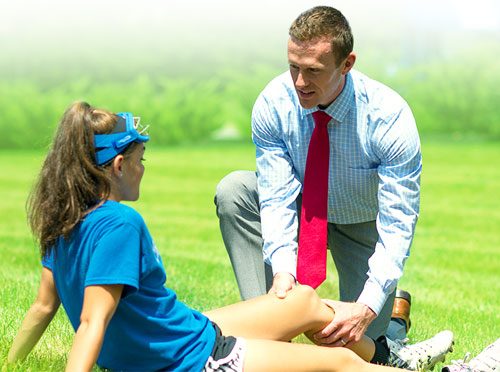Dr. Rice has joined Beacon Orthopedics and Sports Medicine
Congratulations Dr. Rice: 2025 Cincinnati Magazine Top Doctor
Healthcare News
Stretching and strengthening exercises for the Achilles tendon
Achilles tendon damage is common. It can be painful and make it difficult to exercise or even walk. Stretches can help speed up healing and improve mobility.
Growing pains? For young athletes, it might be a sports injury
"Overuse injuries are really predictable," said Silvis, a sports medicine physician at Penn State Bone and Joint Institute in Hershey, Pennsylvania. "We use the 'rule of toos'—too much, too fast, too often. When kids are in the position to overuse certain muscle groups or joints, that's when they start to break down and have injuries."
Preventing, Treating Sports Injuries in Kids: A Guide
Every year, more than 3.5 million U.S. kids are treated for sports-related injuries. The most common injuries include sprained ankles, broken bones, concussions, torn or stretched ligaments and broken or loose teeth. Even though kids are young and strong, their bodies can suffer wear and tear just like adults do. In fact, young people are even more prone to sports injuries because their bodies are still growing.
The next great performance booster for athletes? Sleep
Exercise has long been associated with better sleep and it seems reasonable to assume most elite athletes are good sleepers—after all, their job is to exercise and recover. However, many athletes fail to clear the bar when it comes to getting enough sleep.
What Is the P.O.L.I.C.E. Principle?
The P.O.L.I.C.E. principle may be the new way to ice and otherwise treat a musculoskeletal injury, such as a sprain or strain. The acronym stands for the five steps involved: protection, optimal loading, ice, compression, and elevation. One thing it's missing? Rest, a component of the long-used R.I.C.E. method (rest, ice, compression, and elevation). Some healthcare practitioners now consider P.O.L.I.C.E. an advanced and favored approach.


